I’m lucky enough to have friends like Toby Shapshak who, being the Publisher and Editor of Stuff Magazine, ends up having tons of people give him cool tech to write about. Every once in a while he dumps some stuff on me, things that I normally wouldn’t have bought, but am grateful for later. Toby is a bit of a road warrior, so he and I have a good understanding of what actually works and try not to carry useless stuff with us.
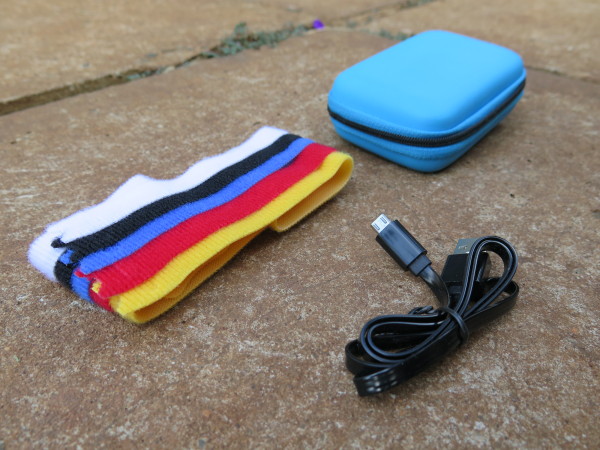
Recently he gave me some more self-organizing bits, like this blue Moleskine case, some color-coded cable ties and a smaller Micro-USB cable.
The Powermonkey Extreme
The last time I was in Jo’burg Toby casually handed me this solar kit. At first glance it seemed a bit big, but I stuck it in my bag and headed for the airport. A week later, I found myself camping with the family and broke out this thing with a funny name, the PowerMonkey Extreme ($200). Inside, there’s an inbuilt 3v solar panel, a 9000mAh battery and some cables for plugging it into the wall, computer or solar panel for charging.
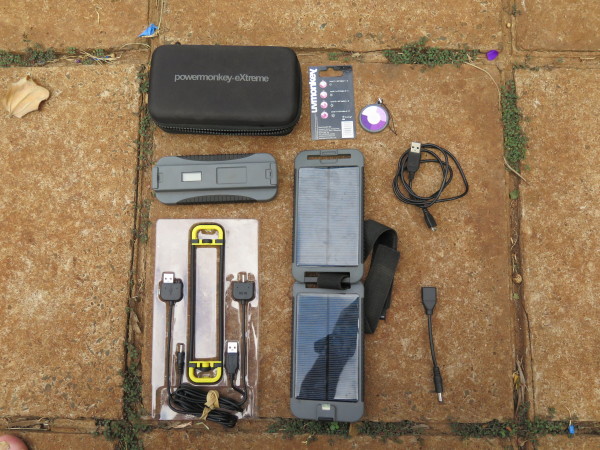
The PowerMonkey Extreme with Aquastrap
What’s cool about it:
- The battery seems to charge pretty quickly using the solar or DC-in cable.
- The battery is watertight, with a clip down cover over the ports. With the Aquastrap, it’s also IP65 rated for dust and water even when the ports are plugged in.
- It has two power-out ports, so you can charge two things at once.
- The case is well designed for packing it all in.
- The digital readout is easy to see, and watertight controls
- A velcro strap on the solar panels let you attach it to things in awkward places.
- The folding mechanism for the solar panels means it can pack better, and this also helps for positioning it towards the sun.
What I wish were different:
- The device has this strange touch-sensitive button that I didn’t know was a button until I hit it.
- I couldn’t understand what the readout meant right away, I had to go look it up. The power charging vs the battery icon confused me.
Keep in mind that the pictures you’re seeing are of the PowerMonkey Extreme after being battle tested, not just on little camping trips with the family either. I took this device up into the northern deserts of Kenya on our BRCK expedition to Lake Turkana and back. On the last day, this was the only thing keeping people’s phones charged as it was the last thing standing, and it could fit in a Land Rover window to keep trickle charged. This is a serious device for real adventure.
Some more pictures:
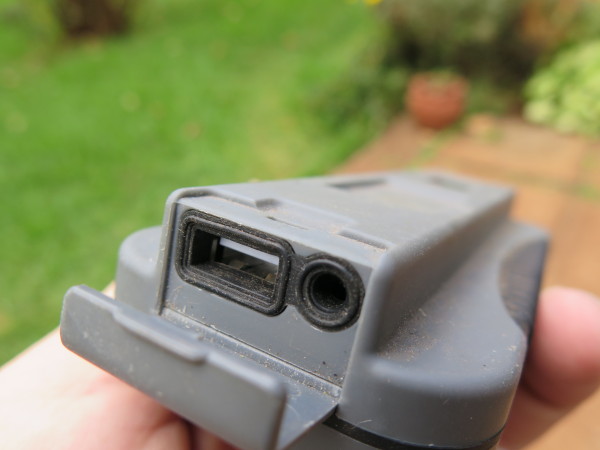
Power-out, you can charge two things at once
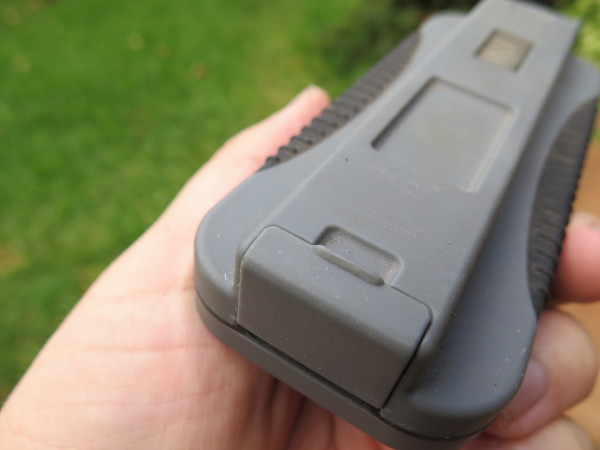
Watertight seals
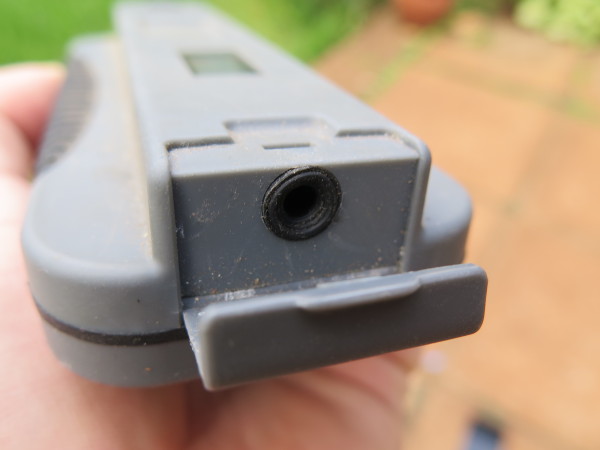
Power-in port
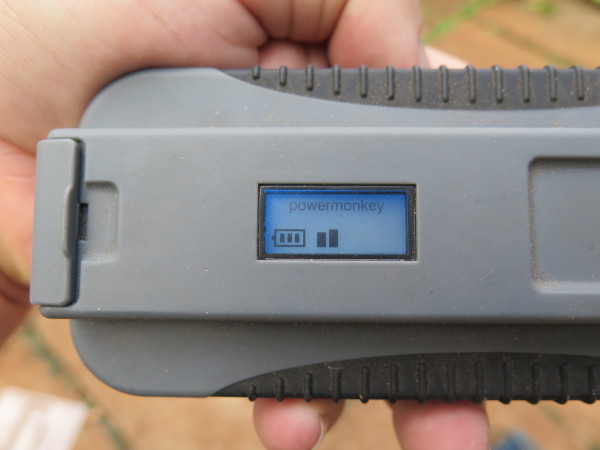
Digital readout on the left, indentation on the right is a touch-sensitive button
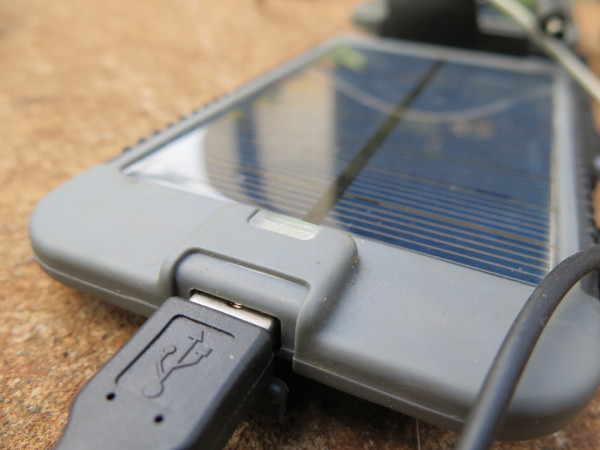
Plugging it into the solar panel
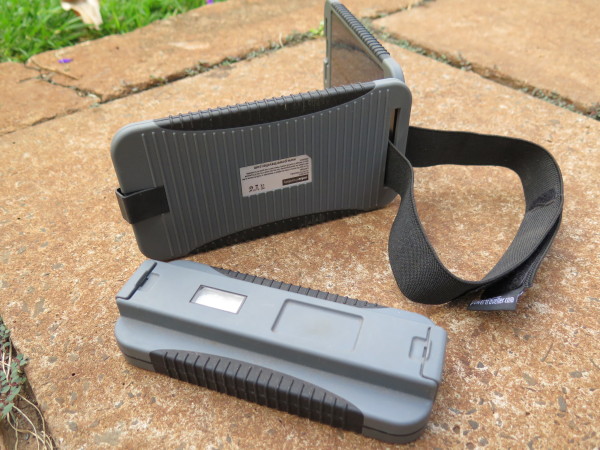
Solar panel with velcro strap, plus the battery.
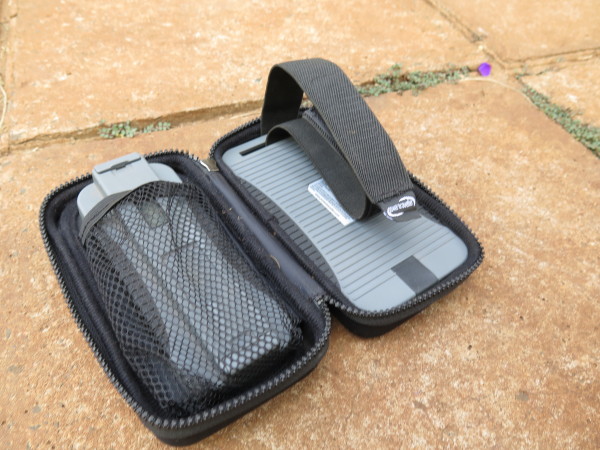
All packed up and ready to zip.
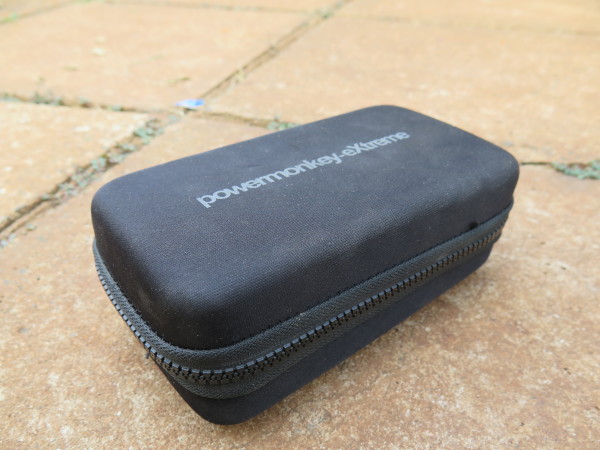
Zipped up.
April 4, 2014 at 2:24 am
Thanks Erik – good tip for remote comms & tech charging. Power monkey looks well robust.
April 4, 2014 at 7:52 am
Any more specific guess on how fast the solar panel charges the battery? It’d be nice to carry but I’m hesitant to replace my Limeade 18000 mAh battery with one half the capacity.
April 4, 2014 at 8:02 am
Michael, I usually carry a Mophie external battery for things around town, but it can’t take the beating of travel around Africa as well, plus it’s not made for juicing up via solar (as far as I can tell). I’m not sure about Limeade, and it’d be hard to drop 50% of your battery capacity at that level. What I’d say is that if you’re really going off grid for a while, then something that you can charge over time like the PowerMonkey Extreme works really well.
How long does it take to charge? If you have good sun, seems like most of the day to charge it.
April 4, 2014 at 10:23 am
I’ve used the Powermonkey extreme for a while now. If you have regular access to power, its a bulky battery but if you really are offgrid in sunny places it really works. I have hiked with it off grid for days to enable me to use gps maps on my phone. In my experience it does take best part of 8-10 hours to charge via the solar panels. I tie the panel to my backpack and leave it out all day.
The first time i used it, I had exactly the same experience as Erik with the touch screen and swiping it. Now I’m used to it, I think its quite a clever design, but it would have helped if the packaging explained it better.
April 7, 2014 at 6:14 am
Hi Erik,
Perfect – I think all my questions have been answered. Though I shall soon be bothering you about info on the trip to Turkana and back as I plan my next roadtrip.
Thanks.
Sam
April 7, 2014 at 11:16 am
Just because I traveled to 12 towns in 2.5 months across TZ AND KE with it (and all the parts are easy and cheap to find)… I would like to propose a cheaper solution for East Africans. It’s called Bootstrap Solar: http://www.bootstrapsolar.com/products/chi-qoo-solar-power-pack-kit
Israel Kloss
Findable.me